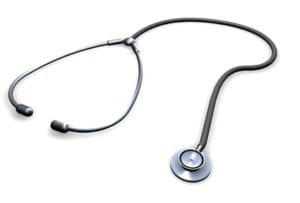The complexity of substance abuse stems from the primary causes that contribute to an addiction. Schizophrenia and related mental health disorders often complicate the treatment process because the disorder contributes to addiction.
The National Institutes of Health (1) state that nearly half of the men and women with schizophrenia also abuse drugs or alcohol throughout their lifetime. Recognizing the signs and symptoms of a dual diagnosis helps identify the right treatment program for a loved one or for personal recovery goals.
Signs of Substance Abuse
According to the Mayo Clinic (2), addiction and physical dependence on a substance develop over time as an individual uses and abuses a substance. The signs of substance abuse include:
- Building up a tolerance for the substance and needing more for the same effect
- Seeking drugs or alcohol, even when they cause harm to the body
- Ignoring personal responsibilities or obligations
- Changing dietary or hygiene habits
- Withdrawal symptoms
Exact symptoms and signs of addiction depend on the substance; however, you will notice that a loved one behaves in an odd manner and attempts to avoid friends or family members.
Signs of Schizophrenia
Psych Central (3) explains that doctors diagnose schizophrenia when an individual exhibits specific symptoms for at least one month. Generally, an individual must have two or more of the symptoms before a medical professional diagnoses the mental health disorder.
Signs of schizophrenia include:
- Hallucinations
- Delusions
- Incoherent speech or inability to maintain a conversation
- Extreme disorganization
- Catatonic behaviors
- Negative symptoms, like emotionless behaviors or giving only short answers during conversation
Only a medical professional diagnoses and identifies schizophrenia. If you have concerns about a loved one, then discuss the situation with a medical professional or encourage a loved one to seek medical attention.
Link Between Substance Abuse and Schizophrenia
When a medical professional diagnoses schizophrenia, it does not necessarily mean that the individual will abuse drugs or alcohol. It does, however, mean that the risk of substance abuse will increase.
The National Institutes on Health (4) report that a correlation does exist between addiction and schizophrenia because roughly 50 percent of individuals with the disorder abuse drugs or alcohol. The theories about the correlation include:
- Shared biological or genetic vulnerabilities
- Environmental or social factors that cause both disorders
- Self-medicating to alleviate the symptoms of schizophrenia
Medical professionals do not fully understand the reason for the high correlation between the disorders, but identifying the risk helps when a loved one is showing signs of substance abuse and schizophrenia.
Dual Diagnosis
Identifying a co-occurring disorder requires professional staff and medical professionals. Generally, a medical doctor will identify the problems after discussing the situation with family members.
Doctors may ask about behaviors prior to substance abuse or the behaviors that loved ones noticed over a period of time. Observing the individual and talking to him/her will also help determine if a co-occurring disorder exists.
The complexity of treating schizophrenia and addiction requires a specialized treatment plan and professional assistance. Focusing on a treatment plan that specifically addresses both disorders at the same time will help reduce the risk of relapse and provide an opportunity for a better quality of life.
Sources
- Nora D. Volkow, Substance Use Disorders in Schizophrenia – Clinical Implications of Comorbidity, National Institutes of Health, March 26, 2009, http://www.ncbi.nlm.nih.gov/pmc/articles/PMC2669586/
- Mayo Clinic Staff, Substance Abuse Symptoms, Mayo Clinic, http://www.mayoclinic.org/diseases-conditions/drug-addiction/basics/symptoms/con-20020970
- Psych Central Staff, Schizophrenia Symptoms, Psych Central, https://psychcentral.com/schizophrenia/schizophrenia-symptoms
- Batel P., Addiction and Schizophrenia, National Institutes of Health, March 15, 2000, http://www.ncbi.nlm.nih.gov/pubmed/10881208











